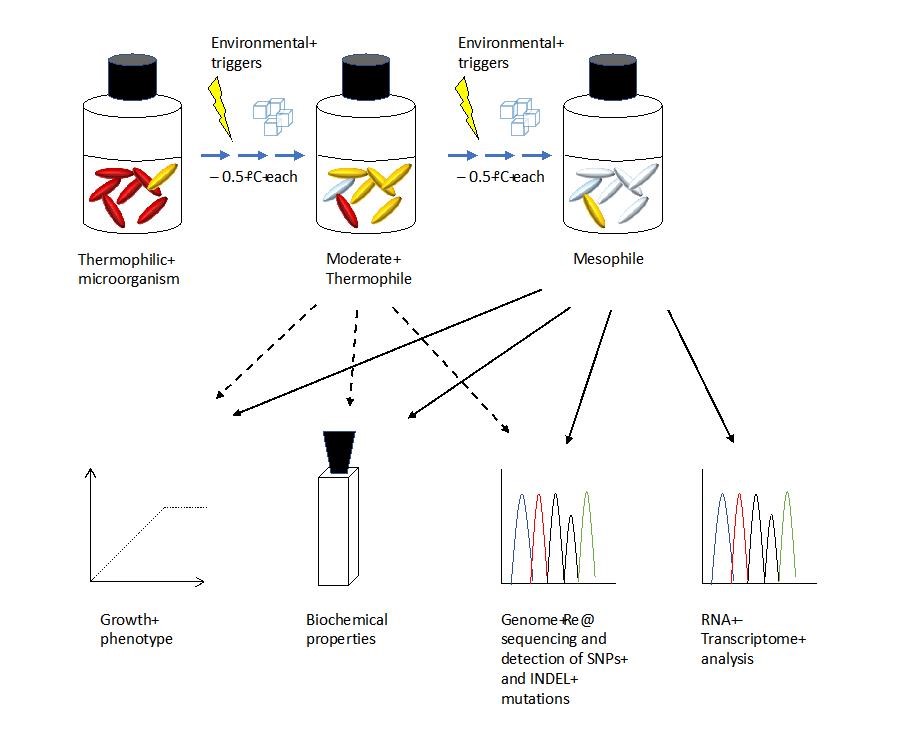Tracking evolution of Life? - Laboratory evolution of a mesophilic microorganism from a thermophilic ancestor (funded by VolkswagenStiftung in the Experiment! Program 2019–2023)
Specifically, the project Tracking evolution of Life? - Laboratory evolution of a mesophilic microorganism from a thermophilic ancestor is based on the hypothesis that the first cells were not only anaerobic acetogenic bacteria (or methanogenic archaea) feeding on H2 plus CO2, but also heat-loving, with temperature optima >45°C (Weiss et al. 2016), the so-called thermophiles. We hypothesize that these thermophiles were ancient, and that the first microorganisms that live at moderate temperatures below 40°C were descendants of thermophiles. Although a lot of metabolic and cellular changes are required in response to lower temperatures, we also hypothesize that the adaptation to lower temperature may have happened fast. One could imagine a hyperthermophilic archaeon growing at 100°C detaching from a marine hydrothermal vent, entering the much cooler seawater and settling at a cold place. In the project, we try to mimic the evolution of a thermophile to a mesophile, using the acetogenic model organism T. kivui (TOPT 66°C). Using a variety of approaches, for example by sequential passaging or by cold-shock experiments, we adapt T. kivui strains to lower growth temperatures (<50°C). Subsequently, we characterize their growth phenotype and metabolism, and analyze molecular changes in the genome or gene expression pattern using omics-technologies. Since the organism is genetically accessible (Basen et al. 2018), we are aiming at observing the effect of single and multiple mutations on the temperature-related phenotype in the future. During the course of the project, we hope to learn about the evolution of mesophily and the molecular changes required become a mesophile or a thermophile.
Team members involved:
Jun.-Prof. Dr. Mirko Basen
Dr. Maria Lehmann (2020 bis 2022)
M.Sc. Christoph Prohaska seit 2021
References:
- Basen M, Geiger I, Henke L, Müller V. 2018. A genetic system for the thermophilic acetogenic bacterium Thermoanaerobacter kivui. Appl Environ Microbiol. 84:e02210-17.
- Basen M, Müller V. 2017. “Hot” acetogenesis. Extremophiles 21:15-26.
- Martin WF. 2020. Older than genes: The acetyl CoA pathway and origins. Front Microbiol.11:817.
- Schuchmann K, Müller V. 2014. Autotrophy at the thermodynamic limit of life: a model for energy conservation in acetogenic bacteria. Nat Rev Microbiol.12:809-821.
- Weiss MC, Sousa FL, Mrnjavac N, Neukirchen S, Roettger M, Nelson-Sathi S, et al. 2016. The physiology and habitat of the last universal common ancestor. Nat Microbiol. 1:16116.


